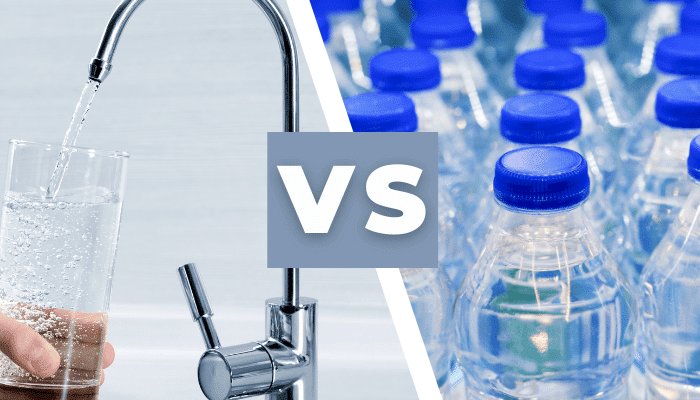
Filtered Water vs Bottled Water: The Smarter Choice for New Hampshire Homes
In New Hampshire, many homeowners rely on private wells, while others use city water sources like Manchester or Nashua’s municipal supply. Whether your water comes from the tap or underground, chances are you’ve considered reaching for bottled water to get something “cleaner.” But is bottled water really the best choice—or would a home water filtration system serve you better? Let’s break it down.
The Health Factor: What’s Really in Your Water?
- Bottled Water: Many brands simply repackage municipal water with minimal filtration. Regulations vary, and in some cases, bottled water isn’t much different from tap.
- Southern NH Tap Water: Well water can carry iron, manganese, and even nuisance bacteria, while city water often contains chlorine and sediment. These can affect taste and, in some cases, health.
- Filtered Water: With a home filtration system, you control what gets removed—whether it’s chlorine, rust, lead, or PFAS (a rising concern in New Hampshire groundwater). The result? Safer, consistently clean water straight from your tap.
Winner: Filtered water, for transparency and peace of mind.
The Cost Comparison: Cents vs. Dollars
- Bottled Water: A family of four in New Hampshire can easily spend $500–$1,000 per year on bottled water, plus the hassle of lugging cases from the store.
- Filtered Water: A one-time installation plus low-cost filter changes gives you unlimited access to clean water at just pennies per gallon.
Winner: Filtered water, for long-term savings.
The Environmental Impact: Plastic vs. Sustainability
- Bottled Water: Americans use around 50 billion plastic bottles each year, and only a small percentage actually gets recycled.
- Filtered Water: Cuts down on single-use plastics entirely. Just fill up your reusable bottle with filtered tap water before heading to work, school, or the gym.
Winner: Filtered water, for eco-friendly living.
Convenience and Lifestyle
- Bottled Water: Portable and easy to grab, but you’re stuck buying, storing, and carrying it constantly.
- Filtered Water: Instantly available from your sink, fridge, or even as a whole-home system—perfect for cooking, drinking, laundry, and bathing.
Winner: Filtered water, for everyday convenience in your New Hampshire home.
The Bottom Line
While bottled water might seem like the “safe” option, it’s costly and creates unnecessary waste. With a home water filtration system, you get cleaner, healthier water at every tap in your house—without the plastic, the trips to the store, or the hidden costs.
Ready to make the switch? Contact GSMS today to explore the right water filtration system for your New Hampshire home. Call 603-424-8258 or visit our contact us page to schedule your free estimate.
Frequently Asked Questions About Water Filtration in New Hampshire
Yes. Many areas of New Hampshire have detected PFAS (per- and polyfluoroalkyl substances) in groundwater and municipal water supplies. A professional water filtration system can reduce these harmful chemicals.
Absolutely. Well water often carries iron, manganese, sediment, and even bacteria. A whole-house filtration system helps protect your plumbing and improve water quality for every use.
It depends on the system and the quality of your water. Most under-sink or whole-house filters need replacing every 6–12 months. GSMS provides guidance and maintenance to keep your system working properly.
Definitely. By removing chlorine, sediment, and other contaminants, filtered water tastes fresher and cleaner, making it better for drinking, cooking, and even brewing coffee or tea.





